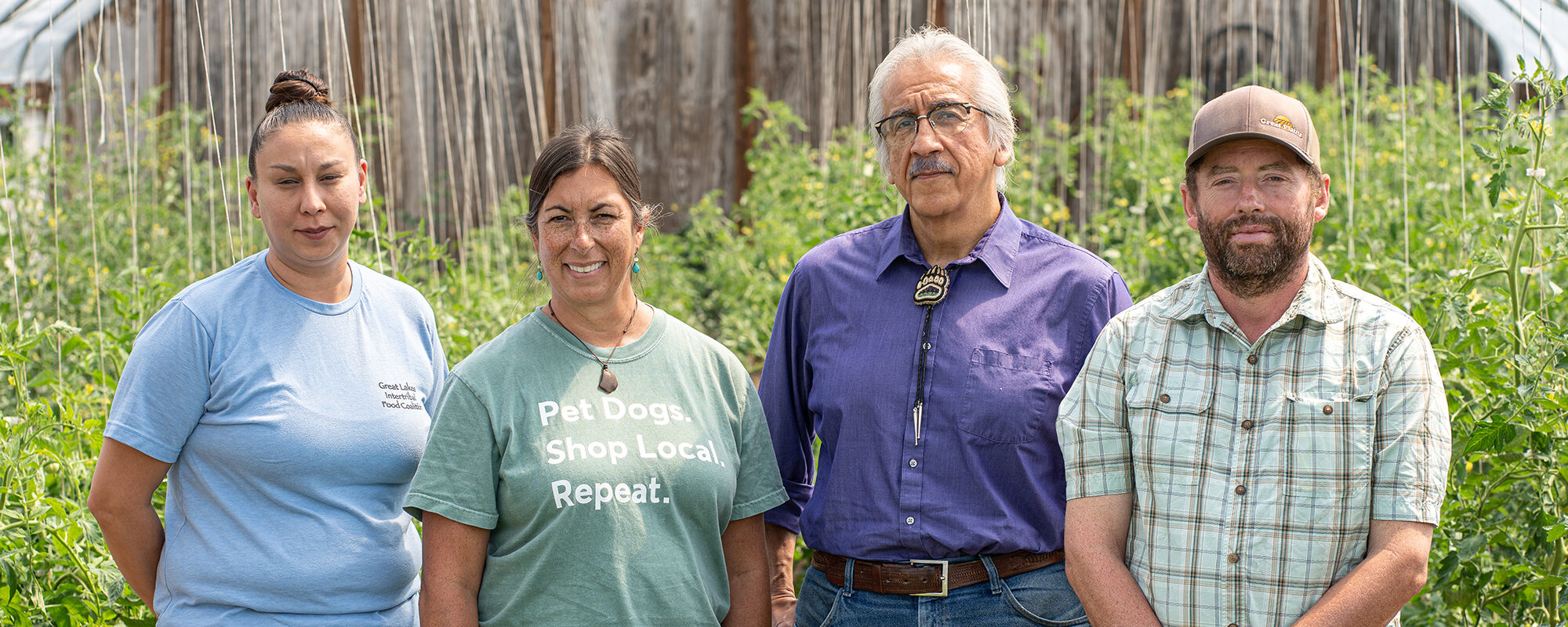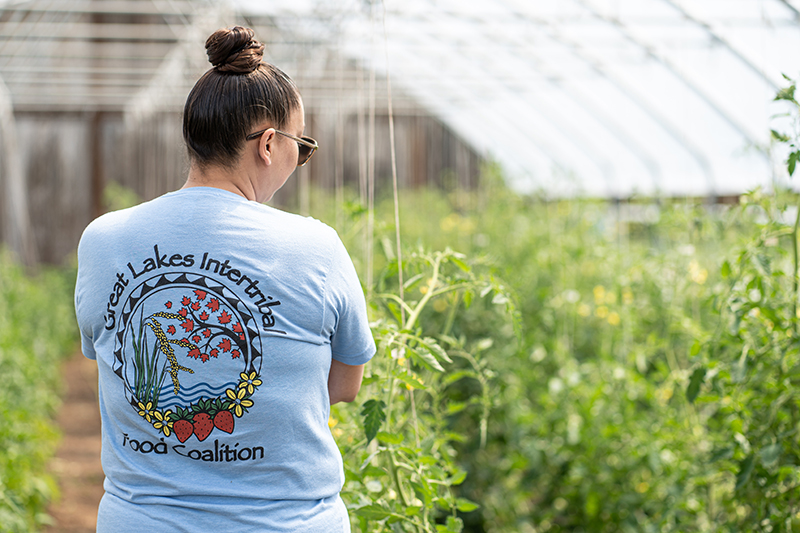Improving Maternal and Infant Health Outcomes in Southwestern Wisconsin
Beginning in 2017, the United Way Great Rivers HUB began tackling the problem of health disparities around childbirth in the La Crosse County area.

There was a moment when Gary Besaw knew the work to improve the food systems for the Indigenous people of Wisconsin was paying off, and it happened in the greeting card aisle of the Walmart in Shawano.
Besaw, the director of agriculture and food systems for the Menominee Nation, ran into a tribal elder he had known all his life, and remarked that she looked dramatically healthier than he had remembered. She proudly told him that her weight had dropped nearly 30 pounds, her blood pressure had improved, she had adopted healthier habits and she no longer had diabetes.
“She said, ‘Gary, I’m 78 and I feel 10 to 15 years younger than I did two years ago. You are doing the right things with your food boxes, thank you for all of it,’’’ Besaw recalled.
She was referring to the Tribal Elder Food Box program, a “food as medicine” effort that now delivers more than 25,000 boxes a year to elders from all 11 Wisconsin tribes and bands, as well as elders living in Milwaukee, Madison, Green Bay and the upper peninsula of Michigan.
They’re filled with nutritious, culturally appropriate food, sourced from native and organic growers around the upper Great Lakes area. Boxes in mid-summer contained Lake Superior whitefish, ground bison, green beans, cranberry beans, lettuce, kale, blueberries, kale, yellow onions, rosemary, herbal tea, cucumbers, currants and wild rice.
The boxes supplanted the old-style food boxes, which often featured white flour and surplus cheese. Besaw said those foods were partly to blame for the high rates of Type 2 diabetes and noted that because “many of us are lactose intolerant,” the foods chosen by the United States Department of Agriculture (USDA)’s former program did not fit a healthy diet for tribal people. The new program was so successful that the USDA has extended the tribally determined pilot project into its fourth year.
Besaw said that the boxes go out to any tribal elder aged 55 or older. There is no income limit, which Besaw said eliminates any stigma about receiving a food box. Instead, he sees them as an investment in the tribe’s cultural history. The boxes were started with a $1 million WPP Community Impact Grant awarded in 2019, that was implemented just as the COVID epidemic was hitting hard in Native communities.
“We wanted to take care of our elders, they are our knowledge keepers, and they were passing away,’’ he said. “We wanted to show them: We value you.”
The elder food boxes are now cited as a national model by Feeding America, and Gov. Tony Evers included $1.5 million a year in his biennial budget to support them in 2024 and 2025.
The WPP grant, titled Creating a Renewed and Culturally Vibrant Healthy Food System for Kaeyas Mamaceqtawak, has also helped the tribal community build a food processing kitchen on the Menominee reservation, rezone more than 600 acres of the tribal land for agricultural uses (a difficult task on a reservation that is 95 percent sustainably managed forest land), write a new food code, and grow capacity in the inter-tribal community of native farmers, food banks and other partners.
On a day in late July, members of several tribes gathered on the Potawatomi farm near Laona, Wisconsin for tours of the aquaponic greenhouse that produces fish and lettuce, the beef and hog rotational grazing operations, the bison herd and a major expansion of the maple syrup operation.

Farm manager Dave Cronauer led tours of greenhouses that were growing the “three sisters” crops of corn, squash and beans, as well as heirloom crops like Potawatomi watermelon, corn and pole beans. The food box program gives native growers a guaranteed market for their crops.
Jen Falck, an Oneida tribal member who was hired as part of the WPP grant, said an unexpected bonus has been promoting ties between Wisconsin tribes that might have seen each other as rivals in the past.
“Intertribal cooperation is a new thing for some of us, and is a super positive development,’’ she said. The boxes may contain Lake Superior whitefish from the Red Cliff band, wild rice from Mole Lake and traditional white corn flour from the Oneida farms near Green Bay.
Falck added, “The WPP grant has allowed the entire team to leverage several resources that have resulted in groundbreaking work that is rebuilding Indigenous food systems.”
The WPP grant was the spark that ignited an Indigenous movement in food sovereignty.
- Gary Besaw
Funding from agencies including the Native American Agriculture Fund, Feeding America, State of Wisconsin, UW-Extension and more support a variety of efforts including programming, infrastructure, food processing, research, public education and technical support. A grant from the USDA supports the project’s participation in the 638 Pilot Demonstration Project, where Menominee and Oneida serve as co-grantees and purchase food for their food distribution programs from local and Indigenous food producers.
Besaw compares the efforts to “rebuilding our old traditional trade routes.”
“A lot of these things were already starting to happen,’’ he said, “but the WPP grant was the spark that ignited an Indigenous movement in food sovereignty.”
Banner image: Pictured left to right: Stephanie Dodge, Jen Falck, Gary Besaw (Menominee), Dan Cornelius (Oneida) at the Indigenous Food Producers Academy